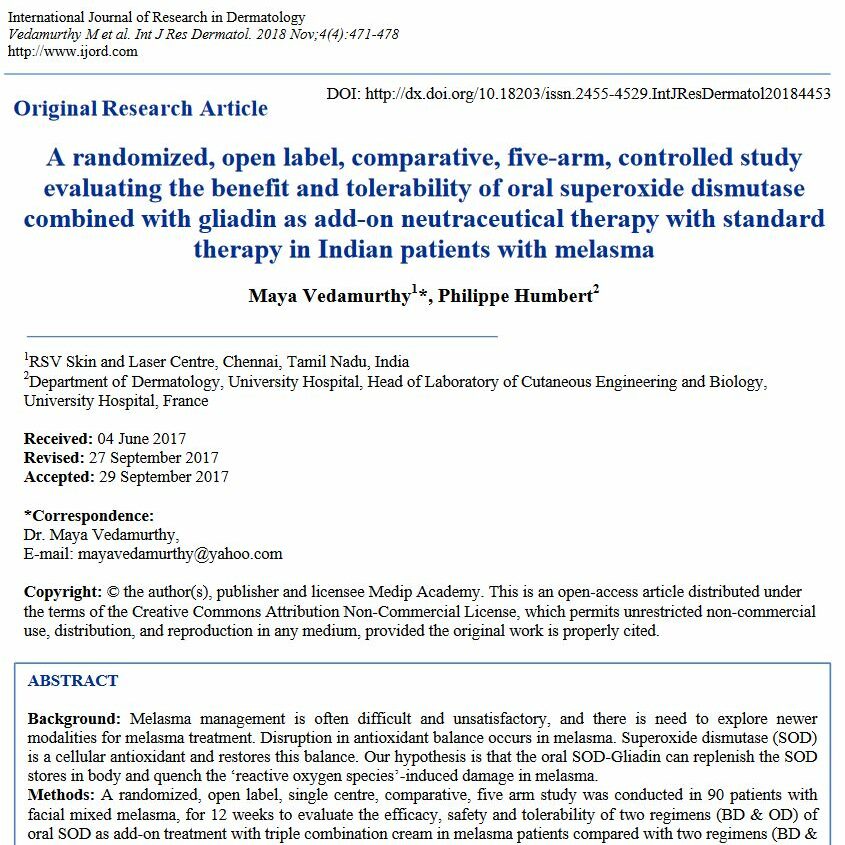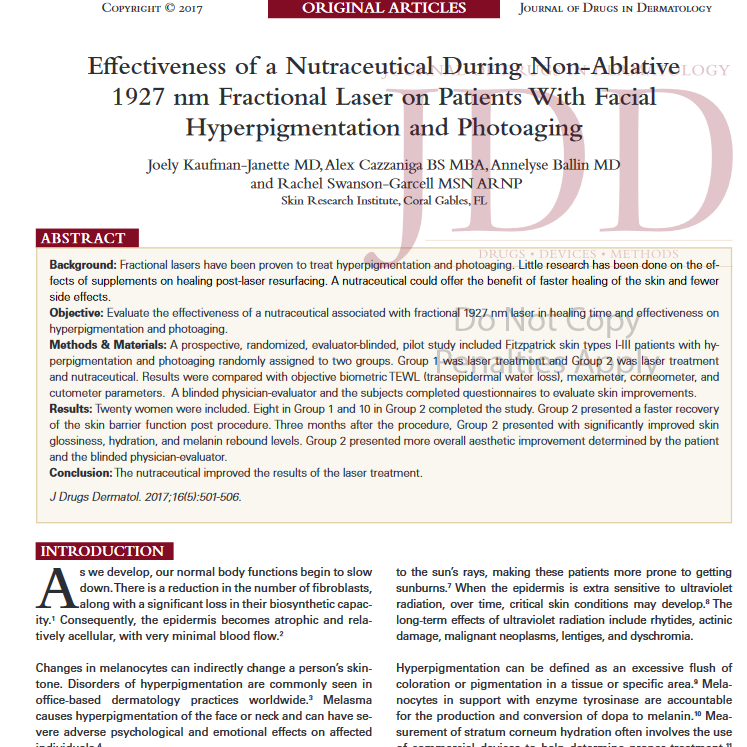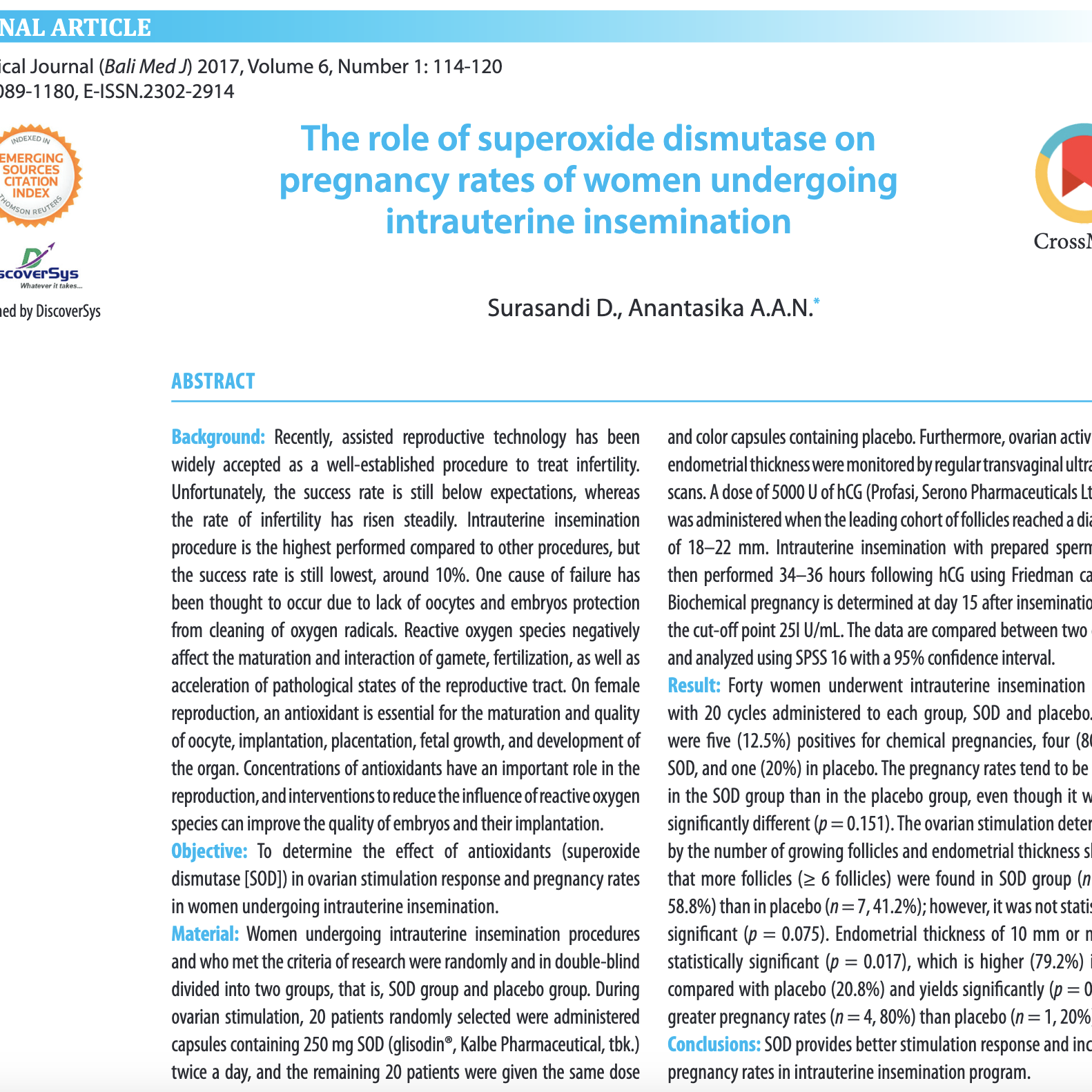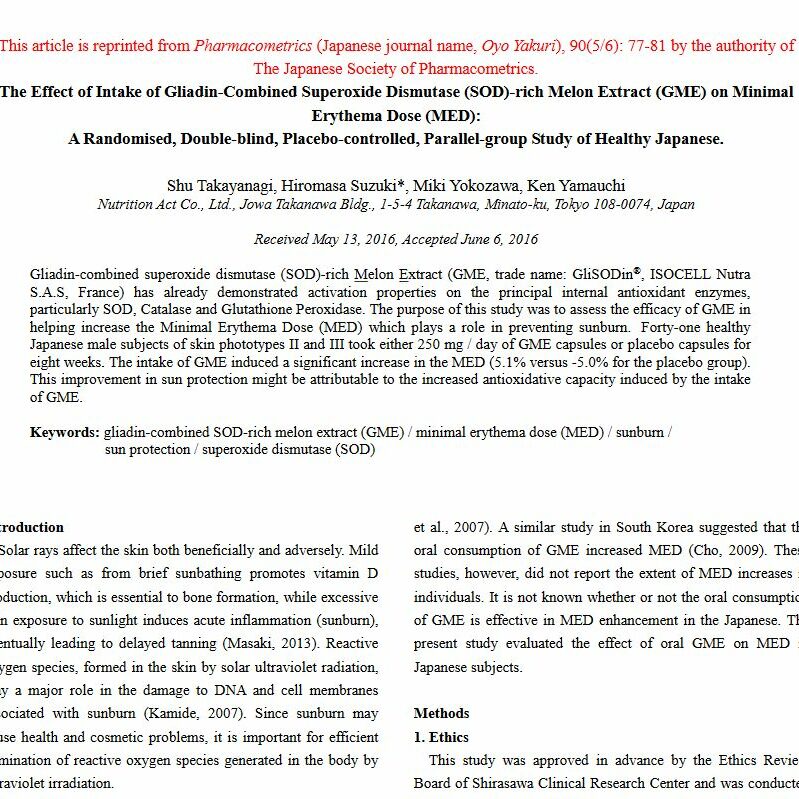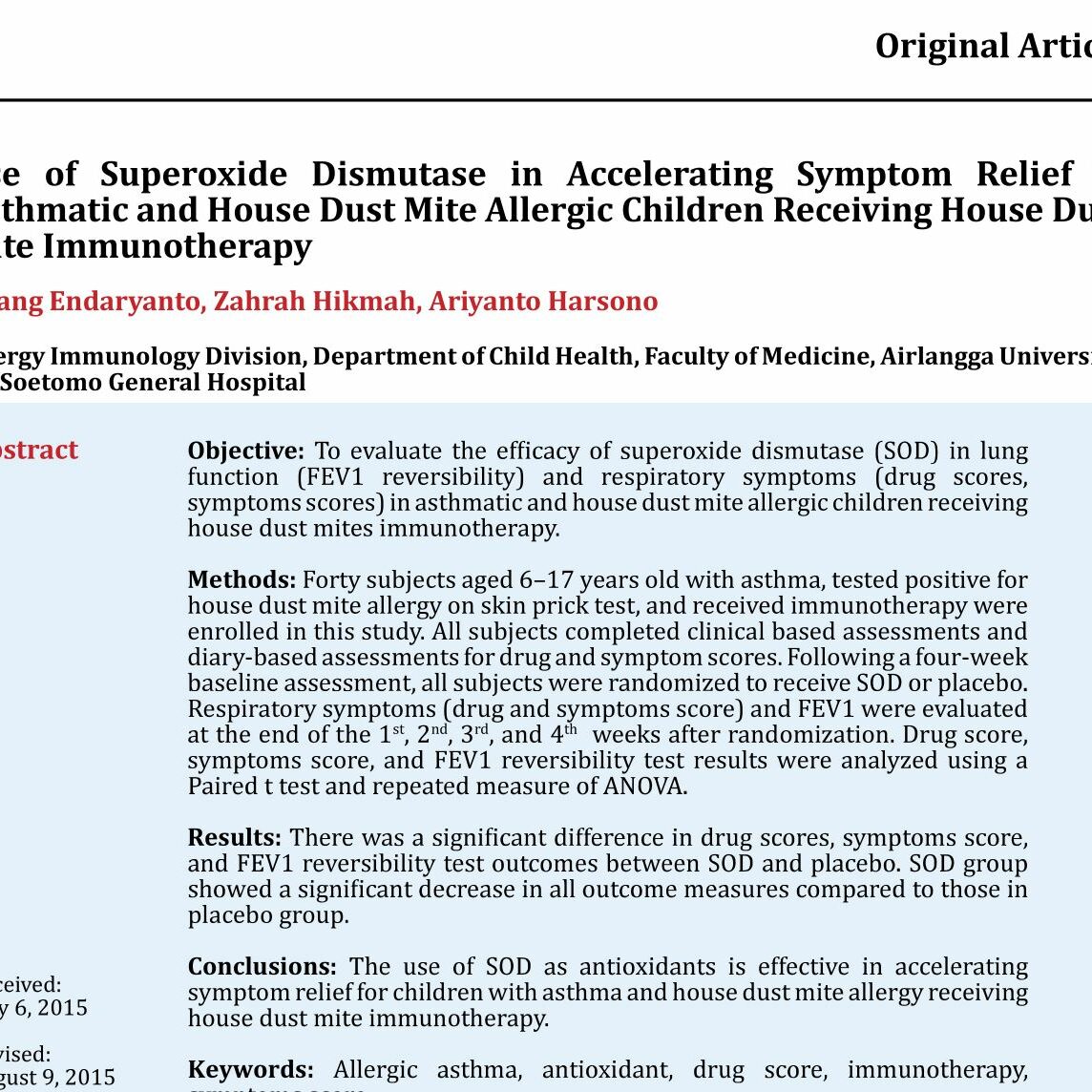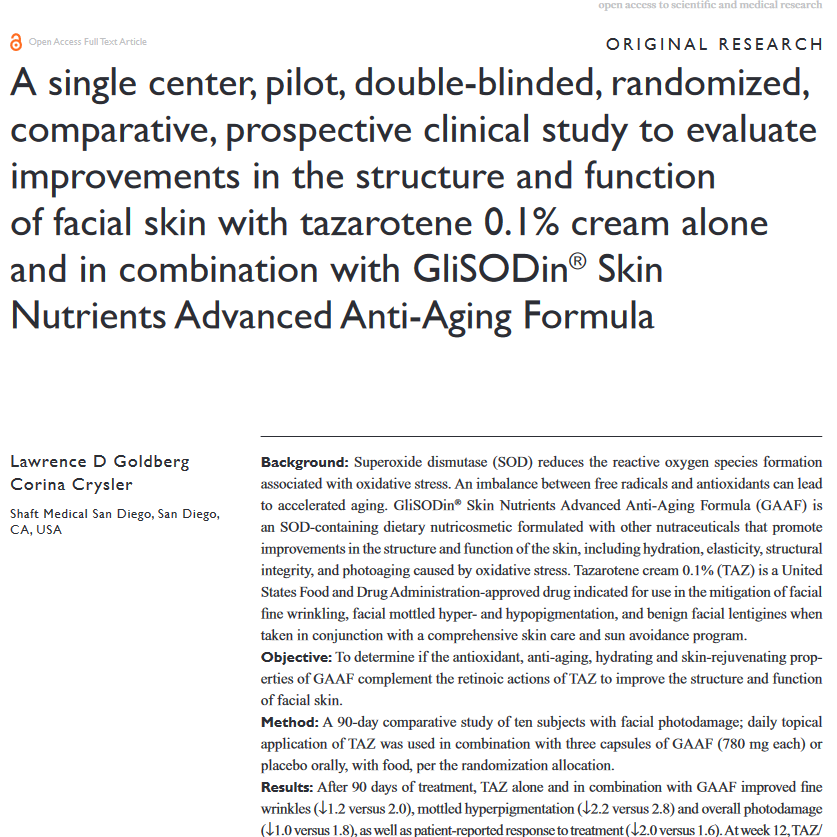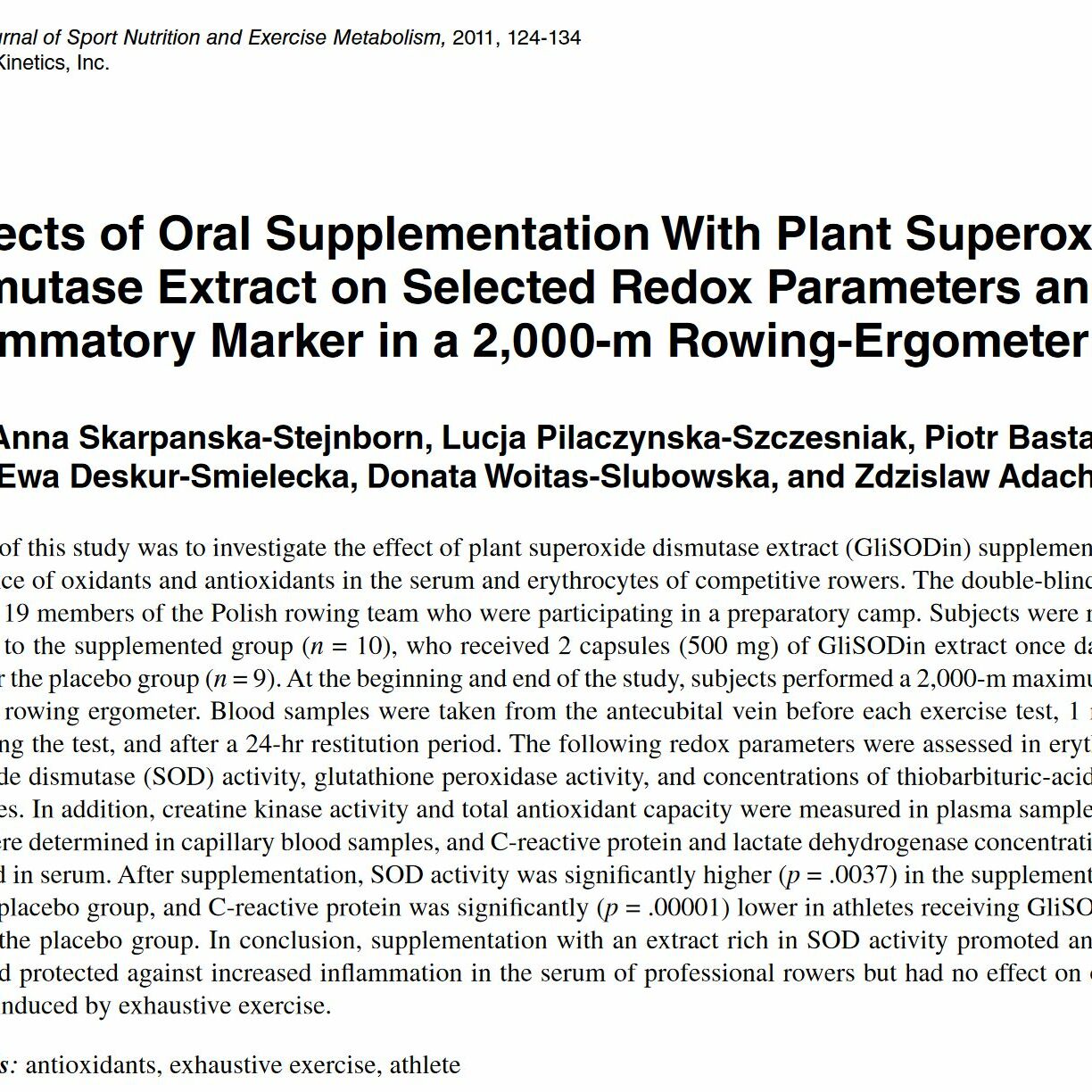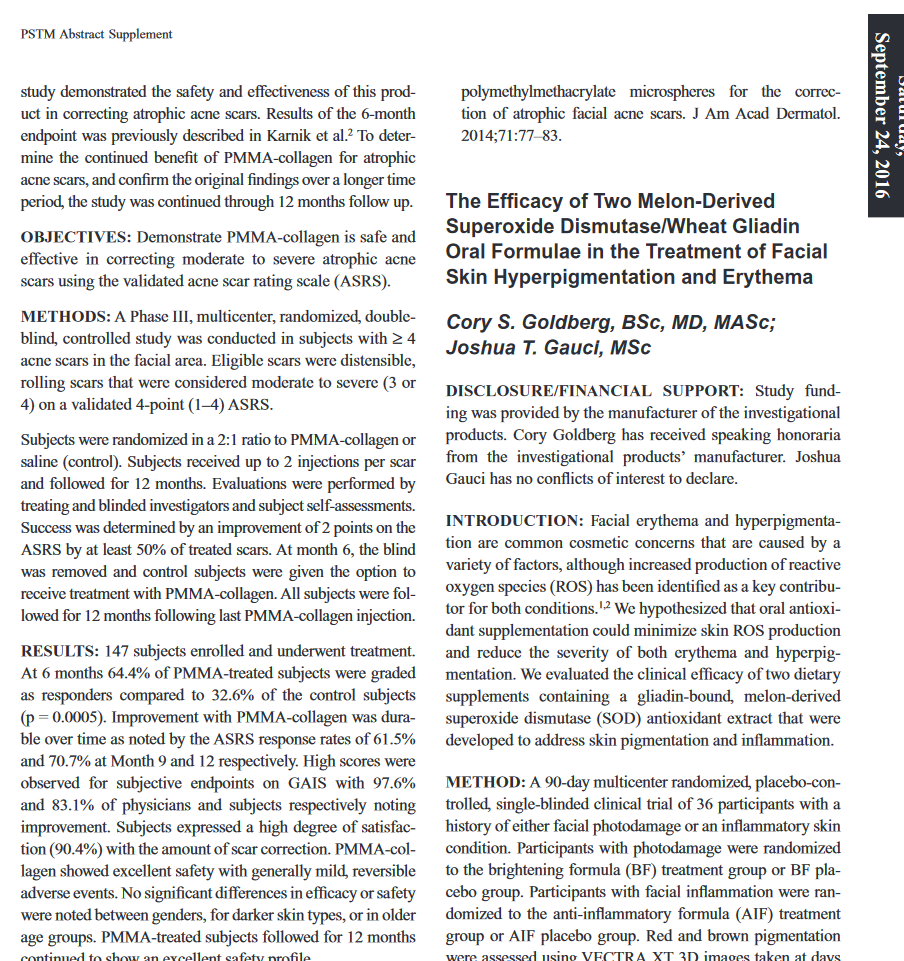
- Journal: Plast Reconstr Surg Glob Open.
- Date: 2016 September
- DOI: 10.1097/01.GOX.0000511256.60478.59
Abstract
INTRODUCTION: Facial erythema and hyperpigmentation are common cosmetic concerns that are caused by a variety of factors, although increased production of reactive oxygen species (ROS) has been identified as a key contributor for both conditions.1,2 We hypothesized that oral antioxidant supplementation could minimize skin ROS production and reduce the severity of both erythema and hyperpigmentation. We evaluated the clinical efficacy of two dietary supplements containing a gliadin-bound, melon-derived superoxide dismutase (SOD) antioxidant extract that were developed to address skin pigmentation and inflammation.
METHOD: A 90-day multicenter randomized, placebo-controlled, single-blinded clinical trial of 36 participants with a history of either facial photodamage or an inflammatory skin condition. Participants with photodamage were randomized to the brightening formula (BF) treatment group or BF placebo group. Participants with facial inflammation were randomized to the anti-inflammatory formula (AIF) treatment group or AIF placebo group. Red and brown pigmentation were assessed using VECTRA XT 3D images taken at days 0, 30 and 90 of treatment. Participants evaluated their subjective skin satisfaction before and after 90 days of treatment using a set of seven 100-mm visual analog scale (VAS) questions that assed skin radiance/glow, redness, irritation, pigment/brown spots, softness/feel, dryness, and overall quality.
RESULTS: No significant changes in total pigmentation occurred at 30 days in any of the treatment groups. After 90 days of treatment, total redness in the AIF group was reduced from 52.20 ± 12.57% to 44.96 ± 9.24% (p = 0.008). Total brown pigmentation was reduced from 73.77 ± 12.69% to 69.15 ± 13.56% (p = 0.042) in the BF group, with a decrease in total dark spots from 20.47 ± 16.57 to 13.76 ± 12.04 (p = 0.010). No significant changes in total redness or brown pigmentation occurred in either of the control groups (p = 0.75 and 0.89). At 90 days, VAS scores were significantly improved for radiance, brown spots and dryness in the AIF group (p < 0.05), with no significant changes in the placebo group. Radiance, softness and overall quality scores were significantly improved in the BF group. The BF placebo group reported significant improvements in brown spot and dryness scores.
CONCLUSION: This study suggests that the AIF and BF supplements provide significant clinical benefits in the reduction of facial erythema and hyperpigmentation.




